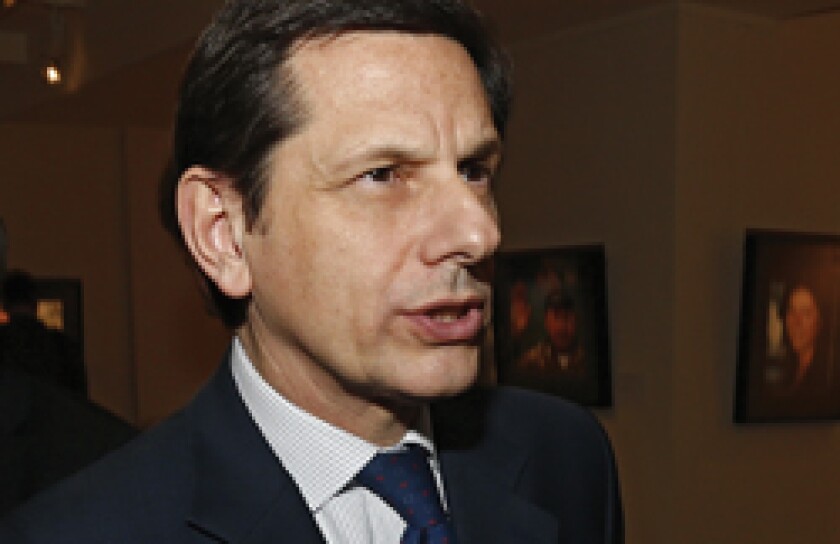European banks are “preparing for the worst” in the wake of Russia’s ill-starred annexation of Crimea and Moscow’s determination to foment unrest in Ukraine, a leading banker warned yesterday.
Gianni Franco Papa, head of UniCredit’s central and eastern Europe division, said that while first quarter business was “generally OK”, the bank had seen “some decrease in its foreign exchange business” in recent months.
He warned that the lender was eyeing Russia’s rapid economic and financial deceleration with unease. “We are hoping for the best, but we are preparing for the worst,” he told Emerging Markets.
Western European lenders in particular are struggling to find reasons to be cheerful amid the unrest in the run-up to presidential elections slated for May 25 that is causing unrest among foreign banks operating in the world’s eighth largest economy.
Russia’s economy is slowing sharply, while capital is fleeing the country at record speed, with as much as $133bn likely to bolt the economy this year.
Financial services activity is waning, in some cases alarmingly so, as global corporates exposed to Russia postpone new expansion strategies, and delay plans to siphon new capital into an economy tipped by the International Monetary Fund to grow by just 0.2% in 2014.
Erik Berglof, the EBRD’s chief economist, pointed to a sudden deceleration of activity in Russian financial services, most notably in syndication activity, which fell 70% year on year in the first three months of the year.
He struggled for reasons to be optimistic about the prospects for foreign lenders with major domestic operations. “Russia will be a challenging market for western European banks in the near future, and that’s something they will have to adapt to,” he said.
That theme is already being played out. Société Générale last week took a $720m writedown on its operations in Russia, the French lender’s second-largest market by client numbers. Its chief executive, Frederic Oudea, then voiced his concerns about the rollout of so-called “phase-three” sanctions that go beyond individuals and individual corporates, if the crisis in Ukraine escalates.
UniCredit is the largest foreign bank in Russia by revenues, and the eighth largest lender operating in the country, with 1.3 million largely mass-affluent customers.
Franco Papa said the bank was monitoring “very carefully” the situation between Russia and Ukraine, and how new sanctions might impact and limit the activities of foreign corporates and lenders operating in Russia.
Few hold out much hope a face-saving détente can be brokered allowing both Russia and the European Union to back out of Ukraine without losing too much face.
Franco Papa said Ukraine remained the “big question mark” for every foreign company operating in Russia and the wider region, with Moscow’s meddling merely “adding to and compounding” the sense of crisis.
“Hopefully a solution will be found on the diplomatic side, but there is a slowdown on the banking side. Ukraine is a different case — it has been in trouble for many reasons for a long times. [Even before the crisis] Ukraine was in a critical situation.”
